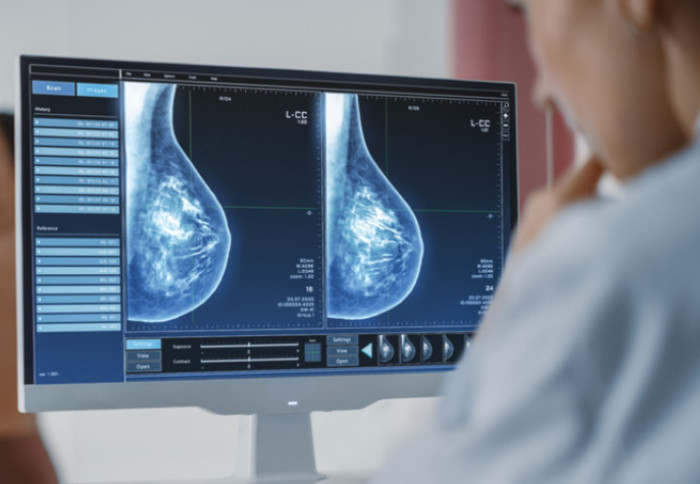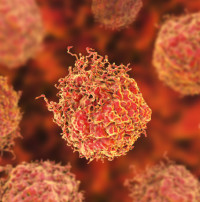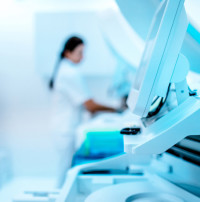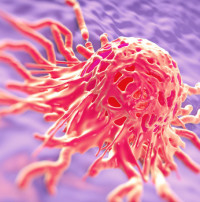World Cancer Day 2022

To coincide with World Cancer Day, we look back at how Imperial College London has been leading the fight against cancer in the past year.
Researchers have been awarded £1 million to trial new MRI scanning methods to diagnose prostate cancer
 Researchers have been awarded £1 million to trial new MRI scanning methods to diagnose prostate cancer.
Researchers have been awarded £1 million to trial new MRI scanning methods to diagnose prostate cancer.
The team, from Imperial College London and Imperial College Healthcare NHS Trust, will explore whether a new type of magnetic resonance imaging (MRI) scan can detect signs of prostate cancer more quickly than current methods.
AI breast cancer screening project wins government funding for NHS trial
UK researchers have secured government funding to study the use of artificial intelligence for breast cancer screening in NHS hospitals. The work builds on previous research which showed that artificial intelligence could be as effective as human radiologists in spotting breast cancer from X-ray images.
Study identifies potential biomarkers for urine test for bile duct cancer
 Early-stage research has found 10 metabolites associated with bile duct cancer which might one day help create a urine test to identify the cancer.
Early-stage research has found 10 metabolites associated with bile duct cancer which might one day help create a urine test to identify the cancer.
The work is the result of a collaboration between Imperial College London and the Khon Kaen University in Thailand, who are working together to understand and reduce the disproportionately high rates of bile duct cancer in the Isaan peoples from the North-Eastern region of Thailand and Laos.
Prostate cancer drugs hold potential for treating COVID-19
Drugs typically used to treat prostate cancer could be explored for treating patients with COVID-19, following encouraging new findings.
Researchers found that the treatment, a type of testosterone-blocker, also reduced the ability of the SARS-CoV-2 coronavirus to infect lung cells in the lab.
Imperial partnered with DNA Electronics to develop breast cancer diagnostic test
 Imperial has partnered with healthcare company DNA Electronics (DNAe) to develop a new platform for monitoring breast cancer.
Imperial has partnered with healthcare company DNA Electronics (DNAe) to develop a new platform for monitoring breast cancer.
The technology could enable earlier detection of recurrent or unresponsive cancer by bringing genomic analysis out of specialist laboratories and to the point of need, where it would be used to detect and sequence tumour DNA from blood samples.
UK cancer patients more likely to die following COVID-19 than European patients
Cancer patients from the UK were 1.5 times more likely to die following a diagnosis with COVID-19 than cancer patients from European countries.
This is the finding of a study of over 1000 patients – 924 from European countries and 468 from the UK – during the first wave of the COVID-19 pandemic.
Genes associated with increased risk of cervical cancer identified
 Scientists have identified three genes associated with an increased risk of developing cervical cancer.
Scientists have identified three genes associated with an increased risk of developing cervical cancer.
The study, led by scientists from Imperial College London and published in the journal The Lancet Oncology, studied data from over 150,000 European women.
Key enzyme aggravates colorectal cancer in obese patients
New research suggests the enzyme CES1 helps tumour cells to survive and drives aggressive colorectal cancer in obese patients.
Colorectal cancer, or colorectal carcinoma (CRC), occurs when abnormal cells start to divide and grow in an uncontrolled way in the large bowel (colon) or back passage (rectum).
Article text (excluding photos or graphics) © Imperial College London.
Photos and graphics subject to third party copyright used with permission or © Imperial College London.
Reporter
Benjie Coleman
Department of Surgery & Cancer
Dorcas Ishaya
Department of Surgery & Cancer